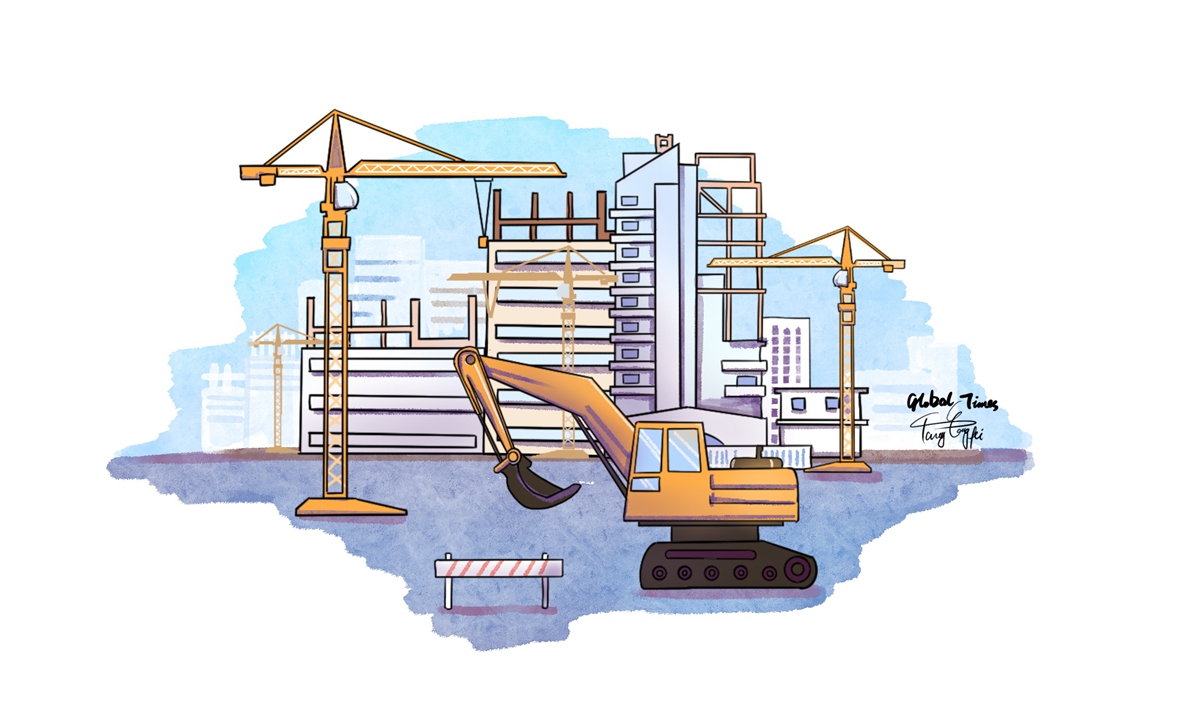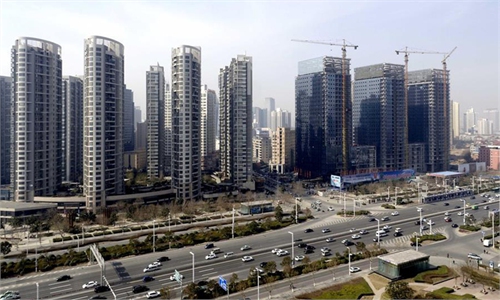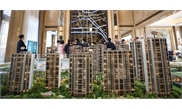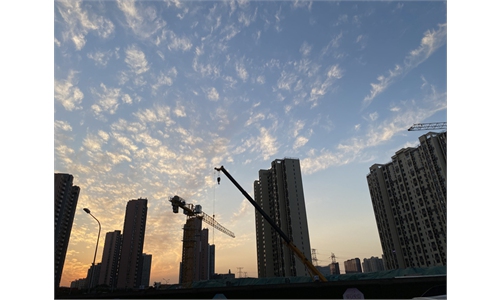
Illustration: Tang Tengfei/Global Times
Some overseas media outlets have begun to pour cold water on China's property sector, declaring the real estate "crisis" is at the heart of China's "economic troubles" because more urban homebuyers angered by stalled or stopped housing projects in some places "are to boycott mortgage payments". Some Western pundits even claim that US-style subprime loan crisis of 2008 is likely to reappear in China.But, these Western media are seriously flawed by exaggerating China's real estate woes. Chinese banks often collect large down payments, usually at 30 percent - which indicates Chinese homebuyers could not afford to renege on their mortgage contracts with the banks, and there won't be a massive US-style subprime meltdown.
As real estate sector makes up a proportionate part of China's economy - some put it at 20 percent of annual GDP, the real estate slowdown has caught the attention of China's policymakers, as the economists and officials are increasingly concerned that prolonged stress in the country's property market will likely cause a cascade of ripple effects through the whole economy system.
Government statistics show the slowdown in real estate sector has already dragged down broader economic indicators like fixed asset investment, and retail sale of building materials, furniture, and home-use electric appliances. Coupled with intermittent COVID-19 resurgences in the country and its negative impacts on household consumption, China's economic activity slowed down in the second quarter this year, with the GDP growing merely 0.4 percent for the quarter.
From January to July, total new residential floor space completed was 233 million square meters, down 22.7 percent year-on-year. Home prices are edging down in the majority of China's tier-2 and tier-3 cities, with national housing sale value reaching 7.57 trillion yuan for the first seven months, down 28.8 percent year-on-year, according to data from the National Bureau of Statistics. If the housing prices continue to fall, the real estate sector will pose a considerable risk for this year's economic growth.
However, a good number of Chinese localities have announced a range of measures to encourage home buying in a bid to accelerate the sluggish real estate sector, which experts have stated will be useful for reducing inventory in some regions, but greater efforts are needed to spur demand for overall economic recovery.
To reactivate home sales, the government has reached into its toolbox again. On August 22, the People's Bank of China, the central bank, moved to cut the five-year loan prime rate by 15 basis points to 4.3 percent from 4.45 percent, which is equal to the largest decrease on record. It also lowered the one-year loan prime rate, which is often used to determine corporate loans, from 3.7 percent to 3.65 percent. Analysts say the rate cuts will significantly bring down the cost of home mortgage repayments, as well as housing developers' borrowing cost.
And, guided by the central authorities, Chinese provincial and city governments have started to provide urgently needed funds and bank loans to real estate developers so that they could continue building unfinished condos, apartments and other housing, and deliver them to homebuyers, promptly.
In the coming months, Chinese lenders, which are mostly state-owned behemoths and flush with funds, should continue to take the lead in maintaining loan growth and safeguarding the financing requirements of the real estate sector. The recent significant cuts in banks' mortgage rates underline the efforts by the authorities to stabilize the property market.
Also, China's housing and banking regulators ought to ramp up mandatory oversight of the real estate developers - prohibiting them from diverting specially-allocated loans, or proceeds gathered from homebuyers' mortgage installments, to other purposes.
For instance, the heavily-indebted China Evergrande Group, which faces restructuring after defaulting on its debts in 2021, was found to have recklessly and blindly expanded to water bottling, electric vehicles, and even buying a soccer team in Guangzhou, Guangdong Province. In the future, such illicit activities by real estate developers must be stopped, which ought to be put on high agenda of all local governments.
In addition to providing loans to the developers to ensure housing supply, the government needs to fire up the demand side of the market too, by removing very strict restrictions on home-buying. Already, the State Council has decreed that city-specific policies be adopted to propel home sales throughout the country.
As a result, many provincial capitals or tier-two and tier-three cities have significantly relaxed their rules on home-buying and property investment. Some cities have moved to cut the ratio of down payments to 20-30 percent from previous 40-50 percent, with urban households with two-three children now allowed to purchase more than two condos. For the majority of China's growing middle class group, they want a more spacious home to live in, and from the perspective of investment, property remains one desirable form of apt investment available to them.
Lately, more than a dozen Chinese cities have announced favorable policies to facilitate home group buying, including Changchun in Northeast China's Jilin Province, Taiyuan in North China's Shanxi Province, Meizhou in Southwest China's Sichuan Province, Kunming in Southwest China's Yunnan Province and Lianyungang in East China's Jiangsu Province. To improve home sales, price discounts of up to 5 percent are being offered by some cities. Apparently, home group buying activity is a sound move to reduce inventory and boost home sales in the country.
The author is an editor with the Global Times. bizopinion@globaltimes.com.cn



